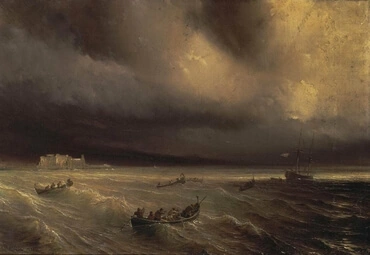1
And it was··evil to▵ Jonah, a great evil, and he was··incensed by it.
2
And he prayed to▵ Jehovah, and said, I pray◦ Thee, O Jehovah, was not this my word, when I was yet upon my own ground? Therefore I went··before to run··away to▫ Tarshish, for I knew that Thou◦ art a God◦ gracious and compassionate, slow◦ to anger and of much mercy, and repenting concerning the evil.
3
And now, O Jehovah, take, I pray◦ Thee, my soul from me; for my death is better than my life.
4
And Jehovah said, Doest· thou ·well to be··incensed?
5
And Jonah went··out from the city, and sat from the east to the city, and there made for himself a shelter, and sat under it in the shadow, until he might see what would become of the city.
6
And Jehovah God provided a kikajon*, and it went··up over Jonah, and it was a shade over his head, to rescue him from his evil. And Jonah was··glad on··account··of the kikajon, with great gladness.
7
But God provided a worm◦ when the dawn came··up on the morrow, and it smote the kikajon, and it dried··up.
8
And it was, as the sun rose◦, that God provided a drying east wind; and the sun smote upon the head of Jonah, and he was··fatigued, and asked··for his soul to die, and said, My death would be better than my living.
9
And God said to▵ Jonah, Doest· thou ·well to be··incensed for▵ the kikajon? And he said, I do··well to be··incensed, even··to death.
10
And Jehovah said, Thou◦ wouldst spare the kikajon, on◦ which thou hast not labored, and didst not cause to grow··up; which is the son of a night, and the son of a night perishes;
11
and should not I◦ spare Nineveh, the great city, in which◦ are◦ multiplied more than twelve myriads* of man* who knows not between his right··hand and his left; and also many beasts?







